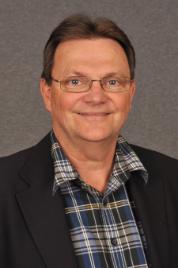'We didn't see it coming!' - Dutch Disease infects Queensland leisure tourism industry
Published on 28 November, 2011
The future of many players within the Queensland tourism industry is under severe threat from the resources boom, warns a CQUniversity tourism expert based in the heart of one of Queensland's high growth regional economies.
‘‘While the accommodation, airline and airport sectors are benefitting from the resources boom, the viability of many tourism enterprises which serve the holiday markets is under serious doubt right now. The medium to longer-term outlook for entrepreneurs to invest in activities and attractions which are vital to the depth and variety of the Queensland holiday experience is bleak," claims Steve Noakes, Senior Lecturer in Tourism at the Mackay campus of CQUniversity Australia.
"It's a case of Queensland's tourism sector being infected by the ‘Dutch Disease' he said, referring to a term coined to describe the decline of the manufacturing sector in the Netherlands after the discovery of large natural gas fields in the 1960s.
"The economic theory outlines how the exploitation of natural resources such as natural gas, coal and iron ore can cause a ‘de-industrialisation' or decline in other sectors such as manufacturing, agriculture or service sectors such as tourism.
Mr Noakes said that, among its various economic and social impacts, the Dutch Disease results in a stronger currency, as we have seen here in Australia, resulting in non-resource export sectors such as tourism becoming comparatively more expensive.
It also crowds out access to accommodation (hotels, motels, caravan parks), makes space and competitively priced holiday fares harder to get on airlines, and pulls capital and labour away from service sectors such as tourism. The Dutch Disease also makes the manufacturing sector less competitive.
"Studies around the world on the Dutch Disease concept and tourism, was more in terms of tourism being the cause of the Dutch Disease phenomenon, when a large flow of foreign investment has come in to unevenly boost local economies through developments such as major resort infrastructure.
"But, here in Queensland now, we are seeing tourism as the victim of a resource sector induced dose of the Dutch Disease," Mr Noakes added.
Mr Noakes has over 30 years of experience in the Queensland tourism industry, including periods on the Boards of Tourism Whitsundays, Tourism Tropical North Queensland, Gold Coast Tourism and Mackay Tourism. He is currently serving as on the Global Panel of Tourism Experts with the United Nations World Tourism Organisation, is on the Board of the Washington DC based Global Sustainable Tourism Council, and has consulted on tourism projects with the World Bank, International Finance Corporation, International Labour Organisation, the Asia Development Bank and numerous governments in the Pacific, Asia and Africa.
He said that many of Queensland's regional economies are undergoing massive transformations.


